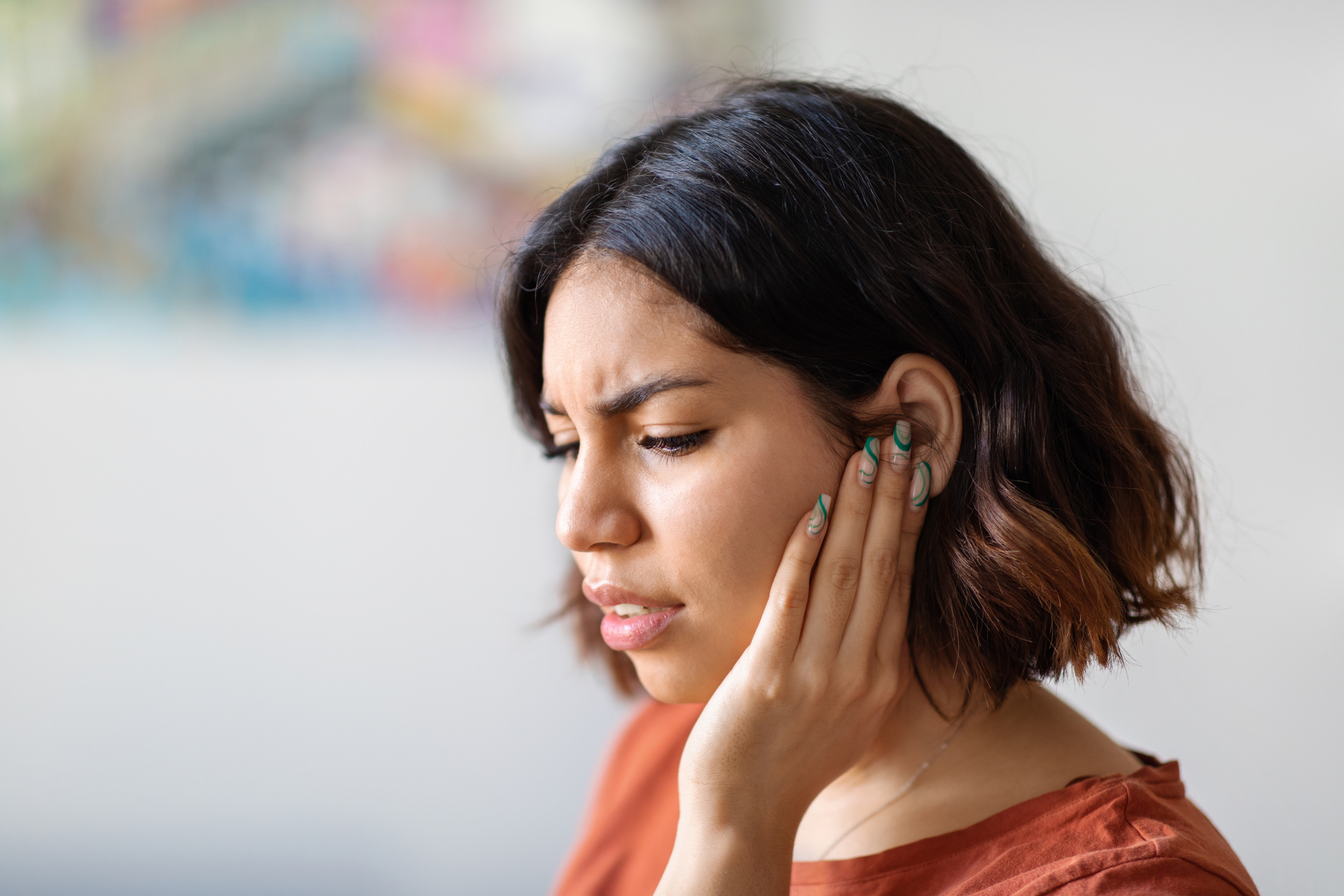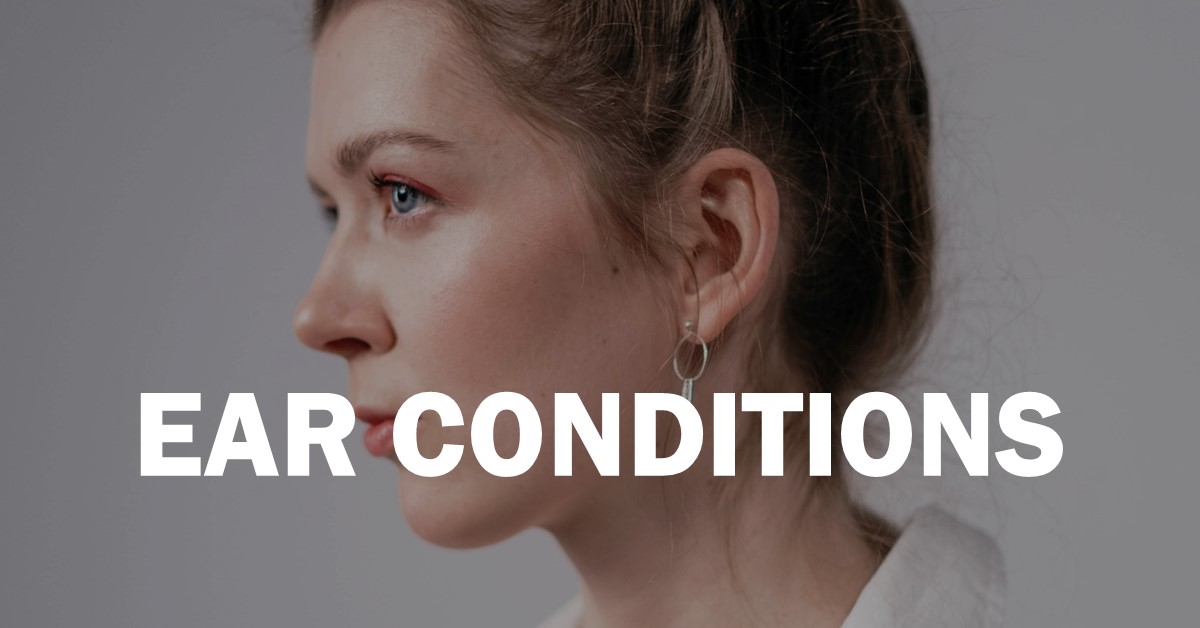What Is Tinnitus?
Tinnitus is a common condition where individuals experience ringing, buzzing, or other noises in their ears without any external sound source.
More than 50 million Americans have encountered tinnitus at some point.
For many, this is a temporary and minor inconvenience. Still, for about 20% of these individuals, tinnitus can be a persistent and bothersome issue that significantly impacts their quality of life and functional health.
Tinnitus can manifest as intermittent or continuous noises affecting one or both ears. The sounds can range from a low roar to a high-pitched squeal or even a mix of various noises. Persistent tinnitus, lasting more than six months, requires careful evaluation and management to alleviate symptoms and improve quality of life.
Recognizing the Symptoms of Tinnitus
Tinnitus is not a disease but a symptom indicating an issue within the hearing system. It often involves a perception of sound in one or both ears and can be associated with hearing loss. The exact cause of tinnitus can sometimes be identified, but in many cases, the connection to an underlying problem is less clear.
Common symptoms include:
- Constant high- or low-pitched ringing in the ears.
- Intermittent or continuous roaring sounds.
- Pulsation or beating noises.
- Presence of noise with or without concurrent hearing loss.
Exploring the Causes of Tinnitus
Most tinnitus cases are classified as primary tinnitus, where no specific cause aside from potential hearing loss is found. Secondary tinnitus, on the other hand, can be linked to identifiable causes which may be treatable. Understanding whether your tinnitus is primary or secondary is crucial for effective management.
Several factors can lead to tinnitus:
- Ear Conditions: Issues within the ear, such as excessive ear wax that touches the eardrum, can alter vibrations and cause tinnitus.
- Middle Ear Problems: Conditions like middle ear infections or otosclerosis (hardening of ear bones) can result in tinnitus. In rare cases, muscle spasms in the ear can also produce these noises.
- Inner Ear Damage: Most tinnitus originates from damage to the inner ear, often affecting the tiny sensory hair cells. This damage can result from exposure to loud noise, certain medications, or aging.
- Noise Exposure: Continuous exposure to loud sounds is a preventable cause of tinnitus; sometimes, tinnitus may occur even before hearing loss becomes apparent.
- Medication Effects: High doses of non-prescription drugs like aspirin or prescription medications like certain antibiotics can damage inner ear hair cells, leading to tinnitus.
- Brain Abnormalities: Uncommon disorders such as head trauma or benign tumors near the hearing part of the brain can also cause tinnitus.
- Cardiovascular Conditions: Tinnitus that pulses with your heartbeat, known as pulsatile tinnitus, may indicate cardiovascular issues and should be promptly evaluated by a physician.
- Non-Auditory Conditions: Factors like TMJ, anxiety, depression, and stress can exacerbate or contribute to tinnitus.
Treatment Options for Tinnitus
A thorough medical history and examination are crucial when seeking treatment for tinnitus. If tinnitus is one-sided, persistent, or associated with hearing loss, a hearing test is typically recommended. In certain cases, further testing, such as X-rays or MRIs, may be necessary, especially if pulsatile tinnitus or asymmetrical hearing loss is present.
Although there is no definitive cure for tinnitus, various treatment options can help manage the condition:
- Hearing Aids: Hearing aids can improve symptoms for those with hearing loss, especially if they include built-in noise maskers.
- Sound Therapy: Background music or noise can help mask tinnitus, making it less noticeable.
- Cognitive Behavioral Therapy (CBT): This therapy helps patients manage the impact of tinnitus on their lives through structured sessions with a trained professional.
- Medical Interventions: Specific treatments, such as removing ear wax or addressing ear infections, can resolve or reduce tinnitus if these issues are the underlying cause.
- Lifestyle Adjustments: Reducing exposure to loud sounds, managing blood pressure, exercising regularly, and reducing stress can lessen the severity of tinnitus.
- Avoiding Certain Medications: Limiting inner ear medications may help prevent or reduce tinnitus symptoms.
Tips to Manage Tinnitus
- Avoid loud environments.
- Check and manage your blood pressure.
- Maintain a healthy lifestyle with regular exercise and adequate rest.
- Use background noise to distract from tinnitus.
- Practice stress reduction techniques.
- Limit caffeine intake.
If your symptoms don’t improve, please don’t hesitate to contact us or your healthcare provider.
Seeking Professional Help
By understanding tinnitus and exploring available treatment options, you can take proactive steps toward managing this often challenging condition. If you are struggling with tinnitus, it is crucial to consult with an ENT specialist or audiologist. They can provide a detailed evaluation, help identify the underlying cause, and recommend appropriate treatments. At Naugatuck Valley ENT, we offer comprehensive care to manage ear conditions and improve your quality of life. Please contact us at (203) 578-4630 to schedule an appointment.
Ear Condition Services at Naugatuck Valley ENT
Our ear condition specialists can help determine which issues are causing your discomfort and develop a treatment plan that will help make life more enjoyable. Our board-certified doctors, dedicated nursing staff , and highly trained ENT specialists will strive to make your ear condition treatment experience a positive and productive one. Please contact Naugatuck Valley ENT at (203) 578-4630 to set up an appointment.




